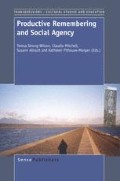Abstract
In Jane Campion’s (1993) film The Piano, the main protagonist and mother, Ada McGrath, plays her piano in a moody, repetitive, and obsessive way that evokes in the audience the character’s inner life. This impression of Ada’s interiority is further shaped through the representation of Ada’s daughter, Flora.
Access this chapter
Tax calculation will be finalised at checkout
Purchases are for personal use only
Preview
Unable to display preview. Download preview PDF.
References
Aitken, Stuart C. (1994). Putting Children in their Place. Washington, DC: Association of American Geographers.
Allen, Richard. (1999). “Female Sexuality, Creativity, and Desire in The Piano.” In Piano Lessons: Approaches to The Piano, edited by Felicity Coombs and Suzanne Gemmell, 44–63. Sydney, Australia: John Libbey & Company.
Attwood, Feona. (1998). “Weird Lullaby: Jane Campion’s The Piano.” Feminist Review, no. (58), 85–101. doi:10.1080/014177898339604
Bachelard, Gaston. (1969). The Poetics of Reverie. Translated from French by Daniel Russell. New York: Orion Press.
Baudry, Jean-Louis. (1986). “The Apparatus: Metapsychological Approaches to the Impression of Reality in the Cinema.” In Narrative, Apparatus, Ideology, edited by Philip Rosen, 299–318. New York: Columbia University Press.
Bentley, Greg. (2002). “Mothers, Daughters, and (Absent) Fathers in Jane Campion’s The Piano.” Literature/Film Quarterly 30(1), 46–58. http://www.questia.com/PM.qst?a=o&d=5035060532
Bihlmeyer, Jaime. (2005). “The (Un)Speakable FEMININITY in Mainstream Movies: Jane Campion’s The Piano.” Cinema Journal 44(2), 68–88. doi:10.1353/cj.2005.0004
Brown, Caroline. (2003). “The Representation of the Indigenous Other in Daughters of the Dust and The Piano.” NWSA Journal 15(1), 1–19. http://www.jstor.org/pss/4316941
Campion, Jane. (1993). The Piano. United States: Miramax Films, 2008. DVD.
Cochran, Moncrieff, & Rebecca S. New, Eds. (2007). Early Childhood Education: An International Encyclopedia, Volume 4: The Countries. Westport, CT: Praeger.
Dalton, Mary M., & Kirsten James Fatzinger. (2003). “Choosing Silence: Defiance and Resistance without Voice in Jane Campion’s The Piano.” Women and Language 26(2), 34–39. http://www.questia.com/googleScholar.qst?docId=5002066473
Gillett, Sue. (1995). “Lips and Fingers: Jane Campion’s The Piano.” Screen 36(3), 277–87. doi:10.1093/screen/36.3.277
———. (2009). “‘The Piano is Mine. It’s Mine.’ My (Free Association with) Jane Campion, or, the Child in the Spectator.” In Jane Campion: Cinema, Nation, Identity, edited by Hilary Radner, Alistair Fox, and Irène Bessière, 233–48. Detroit, MI: Wayne State University Press.
Gordon, Suzy. (1996). “‘I Clipped Your Wing, That’s All’: Auto-Erotism and the Female Spectator in The Piano Debate.” Screen 37(2), 193–205. doi:10.1093/screen/37.2.193
Grumet, Madeleine R. (1988). Bitter Milk: Women and Teaching. Amherst: The University of Massachusetts Press.
Izod, John. (1996). “The Piano, the Animus, and the Colonial Experience.” Journal of Analytical Psychology 41(1), 117–36. doi:10.1111/j.1465–5922.1996.00117.x
James, Allison, & Alan Prout, Eds. (1997). Constructing and Reconstructing Childhood: Contemporary Issues in the Sociological Study of Childhood. (2)nd Ed. London: RoutledgeFalmer.
Jay, Betty. (2006). “‘All Imperfect Things’: Motherhood and the Aesthetics of Ambivalence in The Piano.” Scope: An Online Journal of Film and TV Studies, no. (4). http://www.scope.nottingham.ac.uk/article.php?issue=4&id=125
Jenkins, Henry. (1998). The Children’s Culture Reader. New York: New York University Press.
Jones, Owain. (2001). “‘Before the Dark of Reason’: Some Ethical and Epistemological Considerations on the Otherness of Children.” Ethics, Place and Environment, 4(2), 173–178. doi: 10.1080/13668790120061587
Jones, Owain. (2003). “‘Endlessly Revisited and Forever Gone’: On Memory, Reverie and Emotional Imagination in Doing Children’s Geographies. An ‘Addendum’ to ‘“To Go Back Up the Side Hill”: Memories, Imaginations and Reveries of Childhood’ by Chris Philo.” Children’s Geographies, 1, 1:25–36. doi: 10.1080/1473328022000041643
Klinger, Barbara. (2006). “The Art Film, Affect and the Female Viewer: The Piano Revisited.” Screen 47(1), 19–41. doi:10.1093/screen/hjl002
Kristeva, Julia. (1980). Desire in Language: A Semiotic Approach to Literature and Art. Edited by Leon S. Roudiez & Alice Jardine & translated by Thomas Gora. New York: Columbia University Press.
Kuhn, Annette. (2002). Family Secrets: Acts of Memory and Imagination. New Ed. London: Verso Books.
Lenzer, Gertrud. (2001). “Children’s Studies: Beginnings and Purposes.” The Lion and the Unicorn, 25, 2, 181–186.
Miller, Jean Baker. (1973). Psychoanalysis and Women. Harmondsworth, England: Penguin Books.
Orwell, George. (1953). Such, Such were the Joys. New York, N.Y.: Harcourt, Brace.
Philo, Chris. (2003). ‘To Go Back Up the Side Hill’: Memories, Imaginations and Reveries of Childhood. Children’s Geographies, 1, 1: 7–23. doi:10.1080/1473328022000041634
Pinar, William F. (2004). What Is Curriculum Theory? Mahwah, NJ: Lawrence Erlbaum Associates.
Pinar, William. (2011). The Character of Curriculum Studies: Bildung, Currere, and the Recurring Question of the Subject. New York: Palgrave Macmillan.
Powrie, Phil. (2005). “Unfamiliar Places: ‘Heterospection’ and Recent French Films on Children.” Screen 46(3), 341–52. doi:10.1093/screen/46.3.341
Robinson, Neil. (1999). “With Choices like These, Who Needs Enemies?: The Piano, Women’s Articulations, Melodrama, and the Woman’s Film.” In Piano Lessons: Approaches to The Piano, edited by Felicity Coombs and Suzanne Gemmell, 19–43. Sydney, Australia: John Libbey & Company.
Rose, Jacqueline. (1984). The Case of Peter Pan or the Impossibility of Children’s Culture. London: Macmillan.
Steedman, Carolyn. (1995). Strange Dislocations: Childhood and the Idea of Human Interiority, 1780–1930. Cambridge, MA: Harvard University Press.
Swanson, Gillian. (2000). “Memory, Subjectivity and Intimacy: The Historical Formation of the Modern Self and the Writing of Female Autobiography.” In Memory and Methodology, edited by Susannah Radstone, 111–32. Oxford: Berg.
Editor information
Editors and Affiliations
Rights and permissions
Copyright information
© 2013 Sense Publishers
About this chapter
Cite this chapter
Chang-Kredl, S. (2013). Of Voices and Punishment. In: Strong-Wilson, T., Mitchell, C., Susann, A., Pithouse-Morgan, K. (eds) Productive Remembering and Social Agency. Transgressions. SensePublishers, Rotterdam. https://doi.org/10.1007/978-94-6209-347-8_13
Download citation
DOI: https://doi.org/10.1007/978-94-6209-347-8_13
Publisher Name: SensePublishers, Rotterdam
Online ISBN: 978-94-6209-347-8
eBook Packages: Humanities, Social Sciences and LawEducation (R0)


